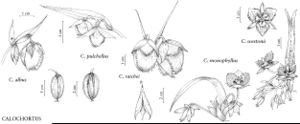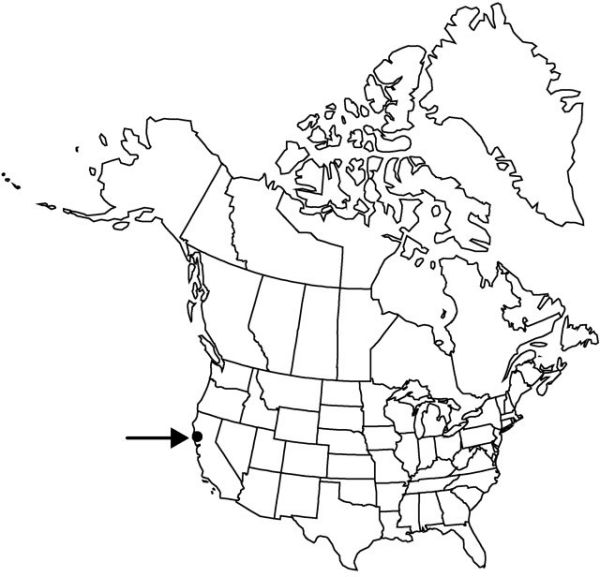Difference between revisions of "Calochortus raichei"
Herbertia 43(1): 3, figs. 1, 2. 1987.
FNA>Volume Importer |
FNA>Volume Importer |
(No difference)
| |
Revision as of 21:40, 16 December 2019
Stems usually not branching distal to base, 1–10 dm, conspicuously glaucous. Leaves: basal 3–4 dm; blade linear, attenuate, channeled, conspicuously glaucous. Inflorescences 1–2-flowered; bracts paired, opposite. Flowers nodding; perianth ± closed at apex, ± oblong; sepals appressed to petals, grayish mauve to pale green, broadly lanceolate, 1–2.5 cm, glabrous, apex acuminate; petals pale yellow, obovate, 2–4.5 cm, adaxial surface moderately hairy from gland to apex, margins moderately ciliate to apex, apex acuminate to acute; glands depressed, with long, thin, distal hairs; filaments 7–9 mm; anthers ± oblong, 6 mm, apex obtuse. Capsules nodding, ridged, not winged, oblong, 2–4 cm, apex acute. Seeds dark brown, irregular.
Phenology: Flowering summer.
Habitat: Exposed serpentine soil in open woodlands
Elevation: less than 300 m
Discussion
Of conservation concern.
Calochortus raichei is known only from the headwaters area of Big Austin Creek, Sonoma County. It is threatened by mining activities.
Selected References
None.

